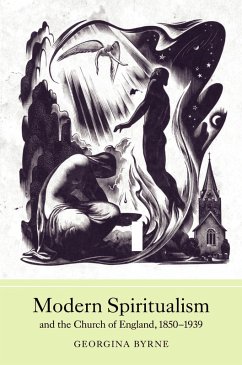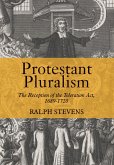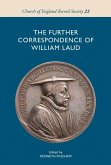Shows how some of the ideas about the afterlife presented by spiritualism helped to shape popular Christianity in the period.
From the moment of its arrival in Britain in 1852, modern spiritualism became hugely popular among all sections of society. As well as offering mysterious and entertaining séance phenomena, spiritualism was underpinned by a beliefthat the living could communicate with the departed and even come to know what life after death looked like. This book, offering the first detailed account of the theology of spiritualism, examines what happened when the Church of England, itself already grappling with questions about the nature of the afterlife, met with such a vibrant and confident presentation.
Although this period saw a gradual liberalising in the Church's own theology of heavenand hell this was not communicated to the wider public as long as sermons and liturgy remained largely framed in traditional language. Over time spiritualism, already embedded in common culture, explicitly influenced the thinkingof some Anglican clergy and implicitly began to permeate and shape popular Christianity - to the extent that even some of spiritualism's harshest critics made use of its colourful imagery. This study sets one significant aspect ofChristian doctrine alongside an attractive alternative and provides a fascinating example of the 'negotiation of belief', the way in which, in the interface between Church and culture, religious belief came to be refreshed and redefined.
GEORGINA BYRNE is an ordained Anglican priest and currently Director of Ordinands for the Diocese of Worcester and a Residentiary Canon at Worcester Cathedral.
From the moment of its arrival in Britain in 1852, modern spiritualism became hugely popular among all sections of society. As well as offering mysterious and entertaining séance phenomena, spiritualism was underpinned by a beliefthat the living could communicate with the departed and even come to know what life after death looked like. This book, offering the first detailed account of the theology of spiritualism, examines what happened when the Church of England, itself already grappling with questions about the nature of the afterlife, met with such a vibrant and confident presentation.
Although this period saw a gradual liberalising in the Church's own theology of heavenand hell this was not communicated to the wider public as long as sermons and liturgy remained largely framed in traditional language. Over time spiritualism, already embedded in common culture, explicitly influenced the thinkingof some Anglican clergy and implicitly began to permeate and shape popular Christianity - to the extent that even some of spiritualism's harshest critics made use of its colourful imagery. This study sets one significant aspect ofChristian doctrine alongside an attractive alternative and provides a fascinating example of the 'negotiation of belief', the way in which, in the interface between Church and culture, religious belief came to be refreshed and redefined.
GEORGINA BYRNE is an ordained Anglican priest and currently Director of Ordinands for the Diocese of Worcester and a Residentiary Canon at Worcester Cathedral.
Dieser Download kann aus rechtlichen Gründen nur mit Rechnungsadresse in A, D ausgeliefert werden.









